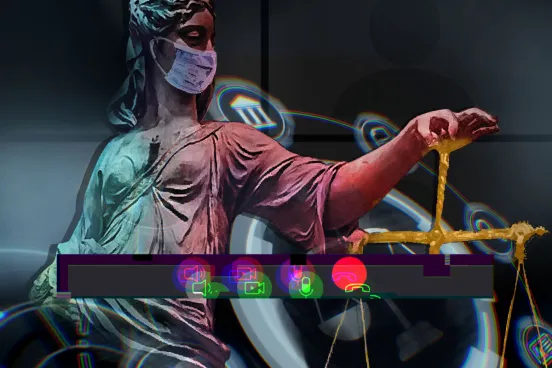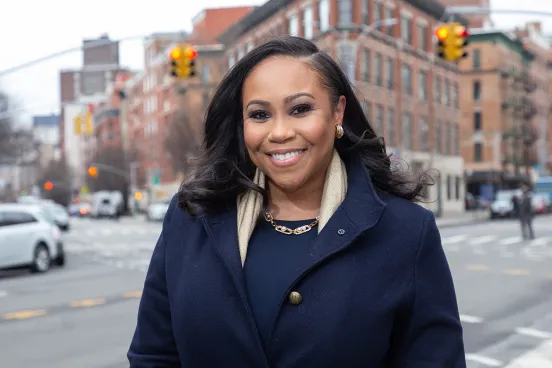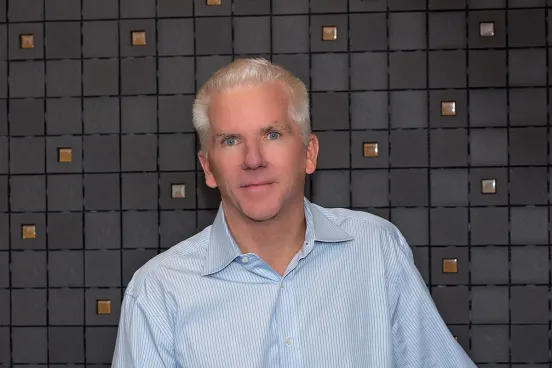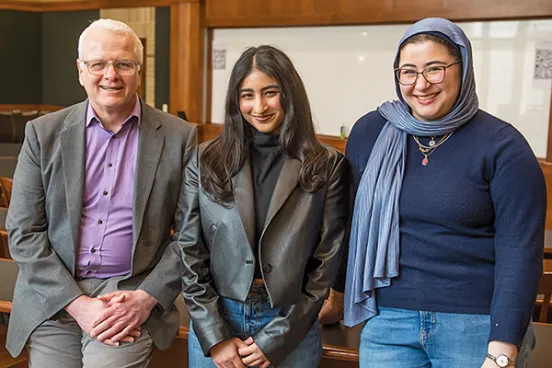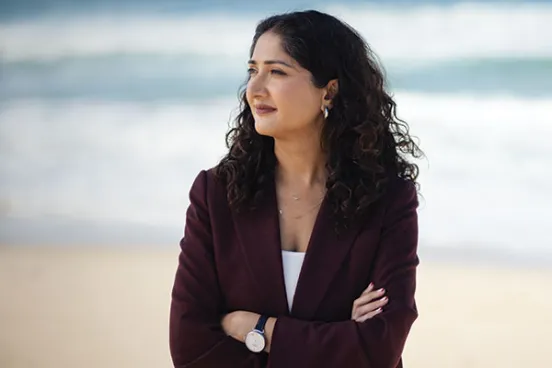
Laurence Kahn, ’77, has spent his life as an advocate in every sense of the word. Following his earlier experience in government and private practice, Kahn formed a volunteer team to launch Help Now! Advocacy in 2004 near his home in southern Oregon. The all-volunteer nonprofit organization specializes in crisis resolution by providing advice and negotiation on matters that fall outside the scope of attorneys or social workers. To date, Help Now! has served as the first point of contact for a variety of both legal and non-legal crises, such as negotiating insurance claims after a house fire, averting power shut-offs, and recovering monies lost in scams. All services are offered at no charge to Help Now!’s largely indigent client base. Kahn is currently working to scale up the organization’s impact through the creation of the first-ever national advocacy hotline to assist with crises that have been compounded by the COVID-19 pandemic.
Kahn first conceived of Help Now! in a middle-of-the-night moment of inspiration. He envisioned a nonprofit organization that could provide urgent crisis assistance to individuals at no charge but would accept donations from clients out of gratitude for the service received. “I started talking to elected officials, business people, and nonprofit executives about whether there was anything like Help Now! in the area, and they uniformly said there wasn’t,” he says. “I also researched online, but I didn’t find any group that was doing anything similar to this concept that had come to me, so I started enlisting people to serve on the board of directors. Over the years, ongoing research and discussions with United Way directors around the country have further confirmed the national uniqueness of the services offered by Help Now!.”
Throughout his career, Kahn has been drawn to what he calls “people practice,” including plaintiff’s personal injury and medical malpractice as well as domestic relations matters. Kahn credits Michigan Law with developing not only his negotiation and problem-solving skills, but also with teaching him to home in on the root causes of a problem. This process skill is something Kahn has worked to instill in Help Now!’s volunteer advocates to ensure they provide solutions that are tailored for each client.
Since Help Now!’s founding, Kahn and his team have assisted nearly 8,700 individuals and families with a wide variety of challenges. On any given day, they field referrals from United Way agencies, seek out pro bono services for clients, and negotiate with businesses and agencies on behalf of clients. This type of case management can be difficult for social service organizations to undertake on a mass scale, as it is labor-intensive and personalized to individual needs. “A good part of the work that we do besides speaking up for people is to give them advice that perhaps they haven’t thought of themselves,” says Kahn. “However, for the disabled and others ill-equipped to do so for themselves, we will provide more hands-on assistance by speaking up for those clients with more powerful others.”
Following the COVID-19 outbreak, Help Now! began receiving more calls than ever, from clients all over the United States. Recognizing that they were filling a nationally unmet need that was growing, Kahn and his leadership formulated plans to expand Help Now!’s reach to a national level, and decided it would be most effective and efficient to launch a hotline supported by a virtual organization. Client queries are handled over the phone through a streamlined process. “Our volunteer advocates specify times they are able to take hotline calls and the calls are then routed to a queue of on-duty advocates,” says Kahn. “Unlike litigation, many of the issues that our clients present can be resolved by a single telephone call following intake. It is very rewarding to have that instant impact.”
Kahn recently stepped down from his executive director role, but he continues to assist with the national rollout of Help Now!’s hotline. The organization is currently seeking funding to upgrade its technology infrastructure and hire a core paid staff to manage the volunteer advocates, and to ensure sustainable funding for the hotline. The organization is recruiting volunteer attorneys and others qualified to staff the hotline from jurisdictions across the U.S.—learn more at helpnowadvocacy.org.


